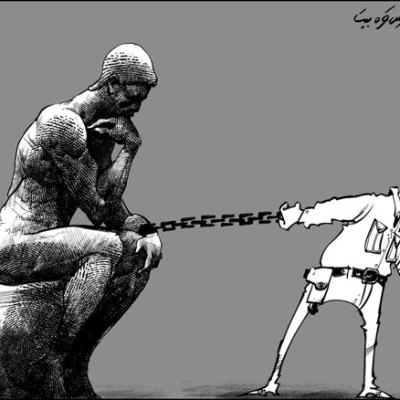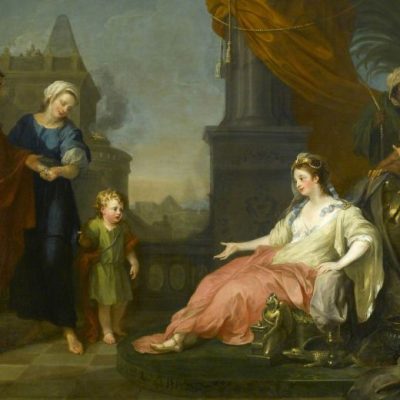Introducing Rakewell, Apollo’s wandering eye on the art world. Look out for regular posts taking a rakish perspective on art and museum stories.
From Roy Lichtenstein to Jeff Koons, modern artists have long had a fascination with comics and cartoons, and the obsession shows no signs of ending anytime soon. In a show at the Hirschhorn, Washington, D.C., the Chicago-based artist Tony Lewis is presenting recent work based on Bill Watterson’s cult classic Calvin and Hobbes. The series incorporates dozens of strips based on the ne’er-do-well six-year-old and his cuddly tiger, with images either drawn over or erased. All that is left are ‘seemingly random words and dialog balloons’.
‘It’s my favourite comic strip since I was a kid,’ Lewis tells Smithsonian.com. ‘Calvin and Hobbes was the first time I saw humor, the first time I saw art, the first time I saw ability to draw, the first time I saw narrative – all at once. And that was super-captivating.’
But you don’t need to travel all the way to Washington to get your comic thrills. For an exhibition at Beano Studios, London, the artist and Specials bass player Horace Panter has celebrated the 80th birthday of the Beano by giving some of its best-loved characters a ‘pop art makeover’ (from 19 April). According to a press release, Minnie the Minx will appear as ‘a Warhol starlet’, while Dennis the Menace and Gnasher have crossed the pond to LA to hang out beside David Hockney’s swimming pool. Lord Snooty, meanwhile, crosses several dimensions of critical theory by appearing in the style of a Lichtenstein painting.
‘Growing up, there was always Beano around; those characters were an integral part of my childhood,’ Panter explains. ‘When punk rock came along it seemed like the Beano set to music!’ Bet nobody ever warned Dennis the Menace about doing Too Much, Too Young…
Got a story for Rakewell? Get in touch at rakewell@apollomag.com or via @Rakewelltweets.




